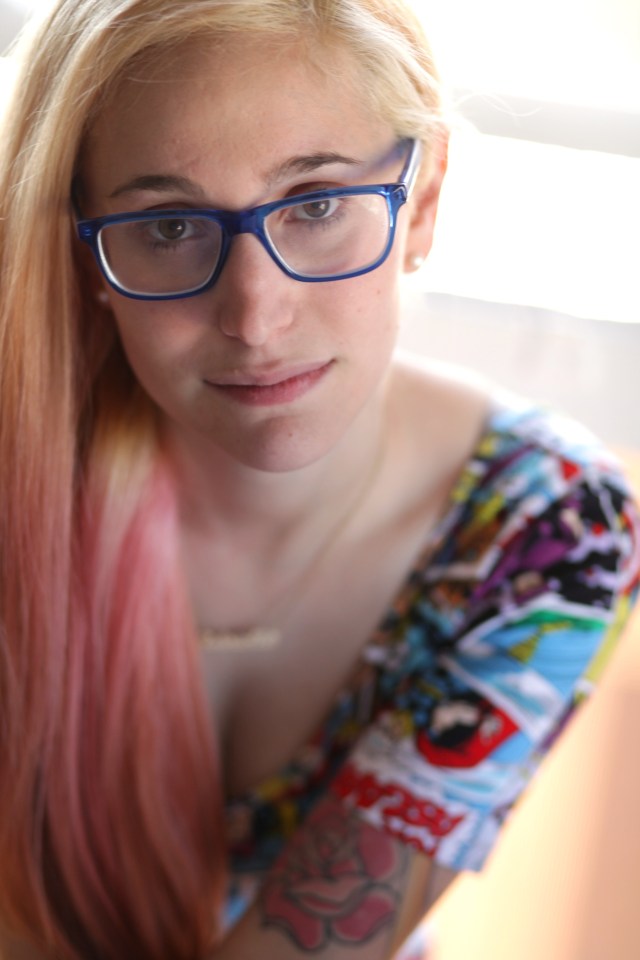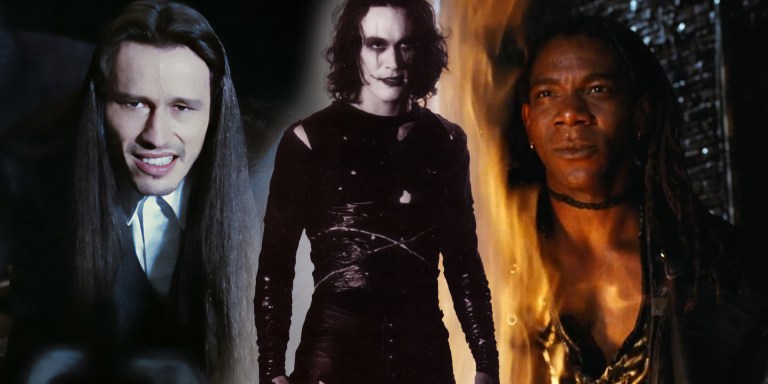My sister is a bombshell.
She’s got long blond hair and curves and when she walks into a room, men act like a literal bomb’s gone off. One time, our mom scolded me by asking, “You know how Tina Fey is beautiful when she’s Tina Fey and not as beautiful when she’s Liz Lemon? Why do you insist on Liz Lemon-ing yourself?” Direct quote.
Because we’re so different, my sister’s beauty has always been a game to me. I tell someone I’ve just met about my tall, blond little sister and when they don’t believe me I pull up a photo of her on Facebook. “Isn’t it funny?” I say. “She looks like Barbie.” In the particular picture I usually use for this joke, she’s wearing a skintight sequin purple mini-dress, her back arched so her long bright hair cascades down her back, her tan evident, her teeth spotlessly white. She looks like Paris Hilton and Kim Kardashian had a model-y baby in a test tube full of glitter.
The reaction from new friends is almost always a stunned look at my phone and then back up to me. How is it possible that someone who looks like that could be sisters with someone who looks like me?
“This explains your entire personality,” my friend Kevin told me, handing me back my phone after flipping through my sister’s profile pictures.
Growing up with the perception that I was “the un-pretty sister,” I assumed I was therefore “ugly,” which by conventional standards isn’t true. But I closed myself off and buried my head in books. I never got invites to slumber parties. Whenever a boy would express interest, I’d ignore it, believing him to be joking or delusional. How could someone ever be attracted to me when she existed?
All our lives, family friends and strangers and anyone who came across us both, would say almost the same exact compliment, “You’re so pretty,” they’d tell her and then turn to me, “And you’re so smart.”
A couple months ago, our grandfather passed away and I came home to South Florida from New York City for the first time in a year. I hadn’t seen my sister in some time; she’d barely graduated from high school and then spent six months doing who-knows-what in Los Angeles before my parents called her home. Meanwhile, I’d graduated from a four-year college and had a job in writing.
My sister and I have always gotten along despite our differences and the funeral allowed us to spend some time together. Both of us were now “adults” and she had just started attending community college in Tallahassee.
Bored, we drove to the local mall to walk around. She bought a pair of Ray Ban sunglasses and talked me into an under-eye concealer I never would have spent money on otherwise. On the way home, the car grew silent. I thanked her for the makeup recommendation and she shrugged.
“That’s the only kind of thing I really know about,” she’d said.
“Sure,” I replied. “You know how to do all the right things to be beautiful.”
I meant the remark to be casual but suddenly, she was angry. “Well, I don’t have anything else going for me like you do!”
Like I do?! I thought. What could someone who looks like her possibly think I have??
Throughout high school, she’d been a Queen Bee, while I’d been teased mercilessly. Why was she now showing signs that she felt less-than? I hadn’t been around during her post-high school year of confusion, but I realized it must have caused some damage.
You see, while I was hearing “You’re so smart, and not pretty,” I realized that she was hearing, “You’re so pretty, and not smart.” The “compliment” had taken its toll on both of us – just in different, equally detrimental ways. It implied to her that because she was good-looking, she had to also be stupid and it implied to me that because I was smart, I could not also be pretty. Growing up, I stewed in my jealousy of her, ignorant that all the while, she was also jealous of me.
In the car, I pressed her on what she meant and she admitted she’d gone to LA to escape what she thought to be the inevitable truth of her stupidity: why apply herself in school or attempt to attend college when getting rejected would validate everything she already felt about her intelligence? Better to never try, she told me, than to try and fail.
Meanwhile, on the opposite coast, hadn’t I been doing the exact same thing? While everything in my professional life validated my intellect, I couldn’t get close to people on an emotional level. I couldn’t have a real relationship that wasn’t cuddling with my Macbook. I couldn’t trust friends. Why try, I reasoned, when I clearly wasn’t pretty enough for anyone to love?
My whole life I’d believed myself to be the victimized sibling, wearing my intelligence and professional success like a suit of self-righteous armor. And right next to me, there was someone else suffering in the same way. We’d both been done a disservice by people who think young women can only be one or the other: smart or pretty. This is what you are forever. You can never, ever be the other one.
On that drive home, I realized that her beauty doesn’t make my sister the enemy. It makes her the only person who could possibly understand. ![]()






